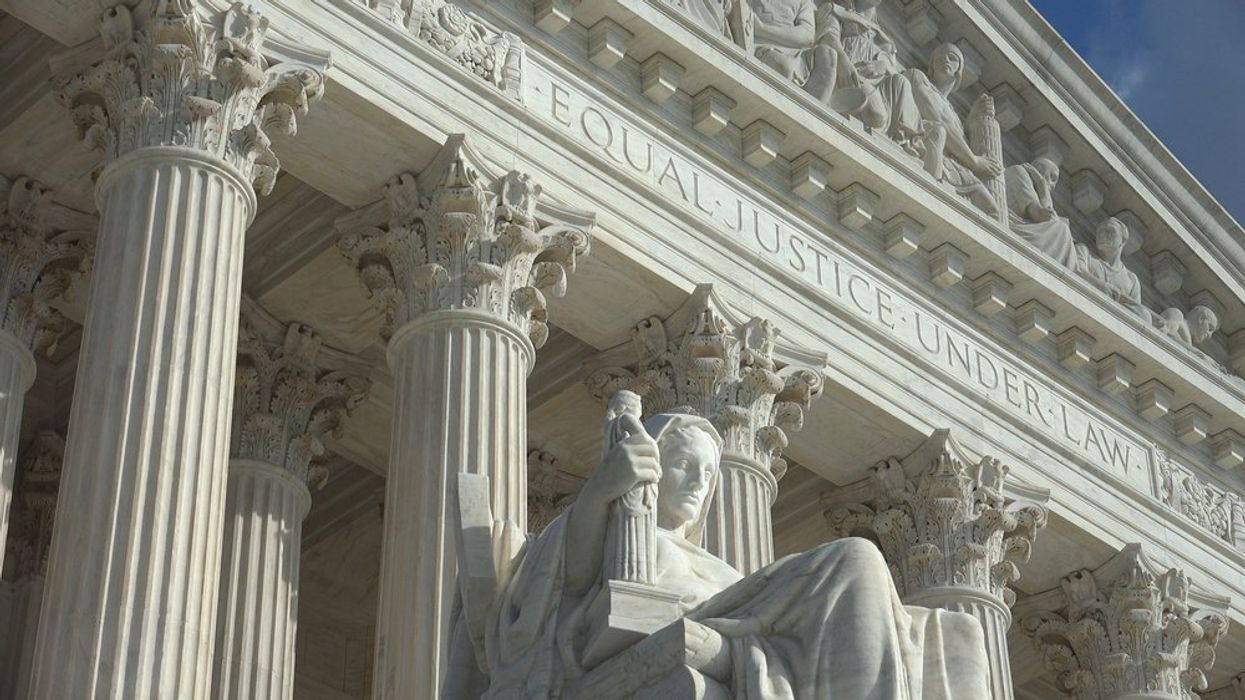
Video Source: Advocate Channel
(CNN) — The Supreme Court on Tuesday rejected an emergency bid from Alabama, setting the stage for a new congressional map likely to include a second Black majority district to account for the state’s 27 percent Black population.
The one-line order reflects that the feelings on the court haven’t changed since June when a 5-4 Supreme Court affirmed a lower court that had ordered the state to redraw its seven-seat congressional map to include a second majority-Black district or “something quite close to it.”
There were no noted dissents.
The justices’ action will have immediate consequences in Alabama and perhaps nationwide in the 2024 elections. There are currently six Republicans and one Democratic member of Congress from Alabama, but the changing makeup of the districts is likely to mean the state will pick up a new Democratic member of Congress.
Black voters lean Democratic in other states with redistricting battles underway as well.
Attempt to go around June ruling
The case has been closely watched because after the court’s June ruling, Alabama GOP lawmakers again approved a congressional map with only one majority-Black district, seemingly flouting the Supreme Court’s decision that they provide more political representation for the state’s Black residents.
The 5-4 opinion in June was penned by Chief Justice John Roberts, who drew the votes of fellow conservative Justice Brett Kavanaugh as well as the court’s three liberal justices.
The same three-judge panel, which had overseen the case before it reached the Supreme Court the first time, wrote that it was “disturbed” by Alabama’s actions in the case and invalidated the map, ordering a special master to draft new lines.
“We are deeply troubled that the State enacted a map that the State readily admits does not provide the remedy we said federal law requires,” wrote the judges, two of whom were appointed by former President Donald Trump.
The three-judge panel declined to put its ruling on hold pending appeal.
Alabama raced to the Supreme Court and asked the court to freeze the lower-court ruling, arguing that its 2023 map passed legal muster even if it didn’t include a second majority-Black district.
The state argued it could distinguish the new map from the plan that was invalidated in June.
Alabama’s Attorney General Steve Marshall, a Republican, argued that the new map kept communities of interest intact, unifying the so-called Black Belt of the state.
“The 2023 plan departed from existing district lines to unify the Black Belt, it split the minimum number of county lines necessary to equalize population among districts and it made the map significantly more compact through changes to each district,” Marshall argued.
Marshall argued the lower court had erred in requiring that a second majority-Black district be drawn.
“The court gutted the State’s discretion to apply traditional redistricting principles in 2023, by expressly refusing to defer to them when they didn’t yield the ‘right’ racial results,” Marshall said.
The state had acted the Supreme Court to act quickly by issuing a stay by October 1, so that elections preparations for 2024 could begin.
Challengers to the map, represented by the NAACP Legal Defense and Educational Fund, the ACLU and others, had urged the justices to reject the state’s bid arguing that the map in question dilutes the power of Black voters.
They charged the state with “unabashedly” defying an opinion the justices issued just three months ago.
The lawyers likened the actions of the state to “our unfortunate history of States resisting civil rights remedies through laws and practices which, though neutral on their face, serve to maintain the status quo.”
This story has been updated with additional details.
The-CNN-Wire
™ & © 2023 Cable News Network, Inc., a Warner Bros. Discovery Company. All rights reserved.
- Alabama Band Director Tased by Police at Football Game Speaks Out ›
- Alabama Republicans Refuse to Draw Second Black District, Ignoring Supreme Court Order ›
- 3 Southern States Defend Congressional Maps that Discriminate Against Black Voters ›
- Alabama Republican Map Rejected For Disenfranchising Black Voters ›


















































